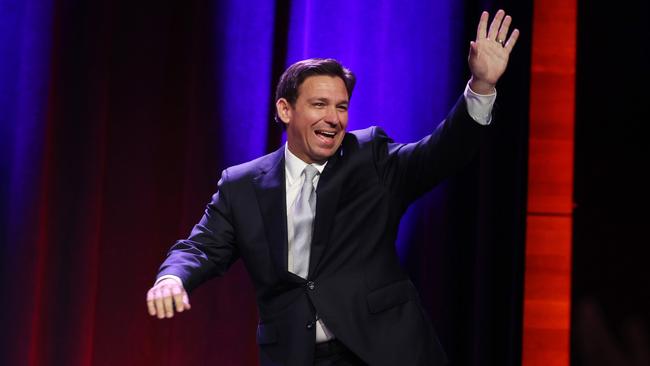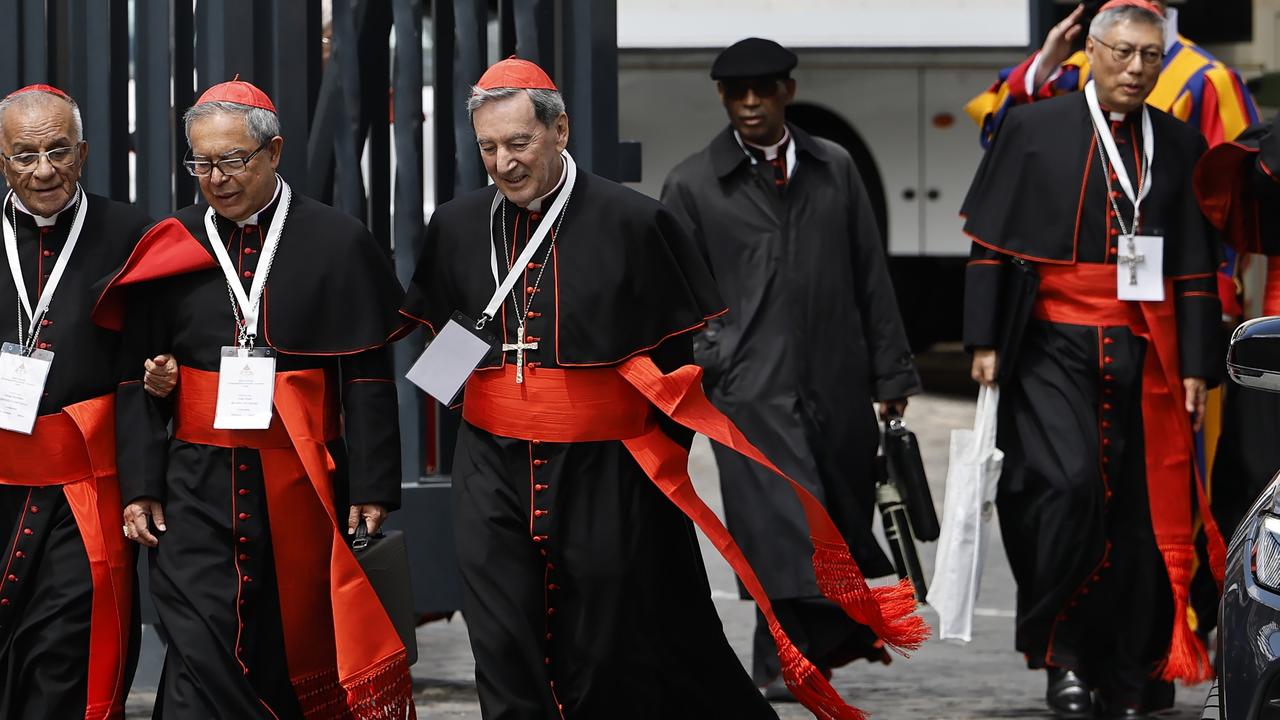DeSantis loves to pick a fight but can’t lay a glove on Trump
The Florida governor, once the favoured candidate of a broad swath of Republicans, is now fighting for his political life.

Ron DeSantis needed to do something different to turn around perceptions of his wilting presidential hopes after an unforgiving month on the campaign trail.
The stage was set for the Florida Governor on Friday night: he was speaking, with all his rivals for the Republican nomination, in front of 1200 well-informed voters at a high-profile event in the crucial state of Iowa. Donald Trump, the overwhelming frontrunner, had just been indicted on more criminal charges, creating a potential opening.
Yet when Mr DeSantis, 44, had his 10-minute speaking slot at the Lincoln dinner he stuck to his regular stump speech, doggedly insisting that only he could consign the Biden administration to the “dustbin of history”, reciting his proudest achievements in Florida – barely mentioning Iowa – and promising to fight supposed “wokeness” in the military.
Like nearly all of his fellow candidates he never mentioned Mr Trump, 77, who strode out last and laid into Mr DeSantis with relish.
After winning a second term as Florida Governor in November by a landslide, many had assumed that Mr DeSantis, a former naval officer, would be a strong candidate to beat Mr Trump.
At the turn of the year the two men were level pegging in the race but recent polls suggest that the former president has opened up a lead of between 25 to 30 percentage points in Iowa, the first state to pick a winner, and a similar gap nationally.
Mr DeSantis, once the favoured candidate of a broad swath of Republicans worried that Mr Trump is too toxic to win a general election, is now fighting for his political life. In some polls Vivek Ramaswamy, a 37-year-old biotech millionaire, has drawn level with the Governor while in South Carolina, the third state to select its candidate, Mr DeSantis finds himself behind Nikki Haley, the state’s former governor and Mr Trump’s former envoy to the UN.
It has been a torrid two weeks for Mr DeSantis’s campaign. Last week it sacked 38 members of staff, about a third of his team. It was the second round of dismissals within a month.
Until the reorganisation, the payroll of Mr DeSantis’s campaign was about double that of Mr Trump’s and relied heavily on big donors.
But these high rollers are becoming increasingly worried. Republican mega-donor Nelson Peltz lives in Florida, where as recently as November abortions were allowed up to 20 weeks into a pregnancy.
Mr DeSantis signed into law a ban on abortions after six weeks. Mr Peltz reportedly thinks the position is “way too severe”.
Ken Griffin, another billionaire backer of Republican candidates who gave $US5m to Mr DeSantis’s re-election campaign in Florida last year, was said to be unimpressed by his comment in March that Russia’s invasion of Ukraine was a “territorial dispute”. Critics are now questioning whether his strategy to position himself to the right of Mr Trump is working.
“Why isn’t Governor DeSantis breaking through?” asked an editorial last week in The Wall Street Journal, which is owned – like The Australian and the Sunday Times – by News Corp.
It suggested he offer “a larger message of national renewal” and stop picking unnecessary fights. These include a threatened legal battle with Anheuser-Busch InBev over its use of a trans woman to promote Bud Light beer, his suggestion that as president he might appoint the Democrat Robert F. Kennedy Jr, an “anti-vaccine crusader”, to lead the top public health agency, and his tussle with Disney over his reform banning discussion about sexual orientation and gender identity in some state school classes.
Despite a growing number of federal criminal charges, some of which allege that Mr Trump was reckless with military secrets, Mr DeSantis has been reluctant to attack the former president directly. It is a mistake, say those who think Mr Trump has little chance of winning against Joe Biden because he is anathema for most middle-of-the-road voters.
“The best pitch for other candidates to make is electability,” said Gunner Ramer, of the Republican Accountability political action committee.
“When we talk to Republican voters in focus groups, they often have a favourable opinion of Donald Trump but their main concern … is whether he can win in a general election.
“What DeSantis should be saying is that Donald Trump has electability issues. When he goes out and defends Trump when these indictments come out, I think it is a crucial mistake.”
THE SUNDAY TIMES



To join the conversation, please log in. Don't have an account? Register
Join the conversation, you are commenting as Logout